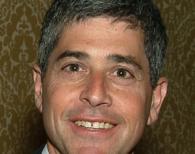Jonathan Bernstein, Not In Our Town executive director, has been tapped for California Attorney General Kamala Harris’ Civil Rights Enforcement Transition Team. The transition team is one of 10 “Smart on Crime Work Groups” and is chaired by Bill Lann Lee, who served as the Assistant Attorney General for Civil Rights in the U.S. Department of Justice under President Clinton.
Not In Our Town
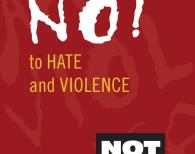
Within hours of a fire bomb at a local mosque, citizens gathered to proclaim that hate was not welcome in Corvallis, Ore.
Local police discovered the arson at the city’s Salman Alfarisi Islamic Center early Sunday morning and quickly responded. The fire destroyed an office, but ignited the community.
Just two days before, 19-year-old Mohamed Osman Mohamud—who attended the mosque while a student at Oregon State University—was arrested in Portland, Ore. for an alleged plot to set off a bomb during the tree-lighting ceremony in the state’s most populous city. Local activists fear the Corvallis mosque bombing was retribution for the Portland incident.
“By Sunday afternoon, we were all calling each other, asking ‘How should we organize a response?” said Corvallis citizen Laurie Childers. Many acted individually, she added, by bringing flowers and cards to the mosque.
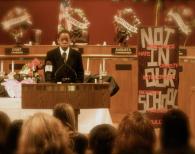
What began as one educator’s effort to create a safer environment for her middle school campus has blossomed into a citywide movement. Next week, Lancaster, Calif. will promote an anti-bullying message geared at the city’s 50,000 students and will memorialize those lost to school bullying.
The city, at its Oct. 26 city council meeting, dedicated the week of Nov. 15-19 to the Not in Our Town Citywide Anti-Bullying program. During the first days of the week, 200 student ambassadors from the four primary and secondary Lancaster school districts will conduct anti-bullying activities at their 20 home campuses. Students will perform a musical dramatization, "Darkness to Light Memorial Service," at the Lancaster Performing Arts Center on Nov. 17.
The strength of the anti-bullying program, according to counselor Lauri Massari, lies in student involvement. Massari, an educator with nearly 30 years of experience, launched the program at Del Sur Middle School last year. She tapped students in her True Leaders program, which focuses on peer instruction.
“Kids create change on campus, not adults,” she says. “Kids create the culture that’s important to them.”

Why do you care about standing up to hate and intolerance? This is the question Not In Our Town is posing with a new video campaign, and we want YOU to be a part of it! We're asking you to make a video response to tell your story of why you're ready to stand up to hate.
Make your video:
Make a video telling us in 1-2 sentences why YOU personally feel inspired to take a stand against hate and intolerance. You can do this any way you like: use your flip cam, cell phone camera, laptop, or even make a text video. Then upload your video response to our YouTube video campaign page. Finally, share the video with at least 3 friends- you can use the "send to a friend" button below or, Facebook is also an easy way to do this! We are exciting to see your video!
Want to participate, but feeling stumped? Here are some writing prompts to get your ideas, feelings, and thoughts flowing. Write whatever comes to mind and let it flow. After this brainstorm, you will come up with your 1-2 sentence answer, but for this part, just write what comes to mind.
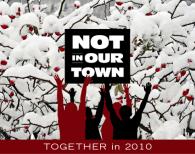
Why should you give to Not In Our Town?
We asked our donors and NIOT Network members, and here's what they have to say:
"After the firebombing of our synagogue in Sacramento I had the taste of dust in my mouth, but the community response helped me move on. You have to give back." -- Rabbi Brad Bloom
“We are in a tough economic period and all around us other countries are looking at the US in a different light. With jobs and money scarce, charity and compassion for The Other seems to fall away in place of "where's mine?" or a need to exact payment for perceived or real slights. All too often that payment comes in a violent envelope. NIOT is critical in how it addresses local acts that detract us from being healthy global citizens." --Susan Estes, The Athena Fund
"Not In Our Town is an integral message of hope, a beacon in world that too often gets bogged down in the petty and the misunderstood. We need to continue this vital outreach to appeal to what our fellow Illinoisan, Abraham Lincoln, called 'the better angels of our nature.'" --Mike Matejka

By Jody McDevitt, a resident of Billings, Montana
In a small town in Northern Ireland, surrounded by farmland where sheep and cows graze the green hills and valleys, the story of Billings, Montana is gaining an important audience. Northern Ireland was known in the second half of the twentieth century as a place of sectarian conflict, widely called the “Troubles,” in which a Protestant majority with British political allegiances (Loyalists) clashed with a Catholic minority with an Irish cultural identity (Republicans). The peace process which was set in place in 1998 has resulted in greatly reduced violence and significantly increased prosperity for this small country–and for the first time, opened the country to migrant workers from other parts of Europe, Asia, and Africa.
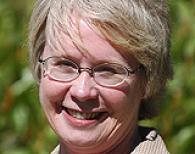
Margaret MacDonald, a leader in the Not In Our Town Movement in Billings, Montana, wrote the following letter to people in Brattleboro, Vermont who are uniting in response to incidents of racism and violence.
I have been reading with a sinking heart about the activities in Brattleboro, and my sympathies go out to the community as it struggles with hate groups cropping up among the youth of the city. Billings was in a very similar state of consternation and dismay back in 1993, when we began to organize the community to confront this phenomenon in ways that were creative, but firm.
Here is a review of some of the guiding principles that helped shape the responses, which were later recognized by the Working Group documentary “Not In Our Town.”
The first principle was that the hate speech – the graffiti, the vandalism, the flyers around town – should not be ignored simply because it came from “kids.” Of course, we did not know exactly where it came from, but many community leaders presumed it was, and also thought the best course would be to pretend it wasn’t happening.
